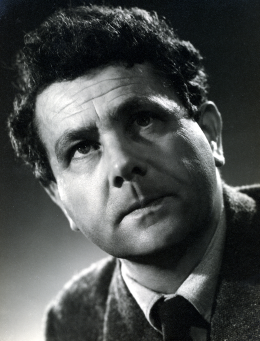Finzi, Five Bagatelles (3 and 4)

The music of Gerald Finzi (1901-1956) in many ways follows the style of his fellow British composers Sir Edward Elgar and his friend Ralph Vaughan Williams. Best known for his choral works and songs, Finzi’s Five Bagatelles, written for clarinet and piano, is one of his few chamber works and the only work in that category that is regularly performed.
Finzi studied with Ernest Farrar from 1914 to 1916 and was deeply affected by Farrar’s death in combat during World War I. His father died when Finzi was 7 years old, and his three elder brothers also died before the end of World War I (one from suicide, one from pneumonia, and one in combat). These events are said to have deepened Finzi’s introspective nature and given him a strong sense of life’s uncertainties.
Like Vaughan Williams, Finzi had a strong interest in English folk melodies and the English countryside. Although born in London, in 1922 he moved to Gloucestershire (home of Vaughan Williams and near the home of Elgar). Vaughan Williams helped him secure a teaching post at the Royal Academy of Music from 1930 to 1933. Finzi then moved to Ashmansworth where he became proficient in apple farming. His scholarly interests extended to English poetry, 18th-century English music, and the history of English song. Many of Finzi’s songs are based on the poetry of Thomas Hardy.
This performance includes two of the Five Bagatelles, which can serve as a good introduction to the folk-like lyricism that permeates much of Finzi’s writing. We will have to return soon to some of his songs.



